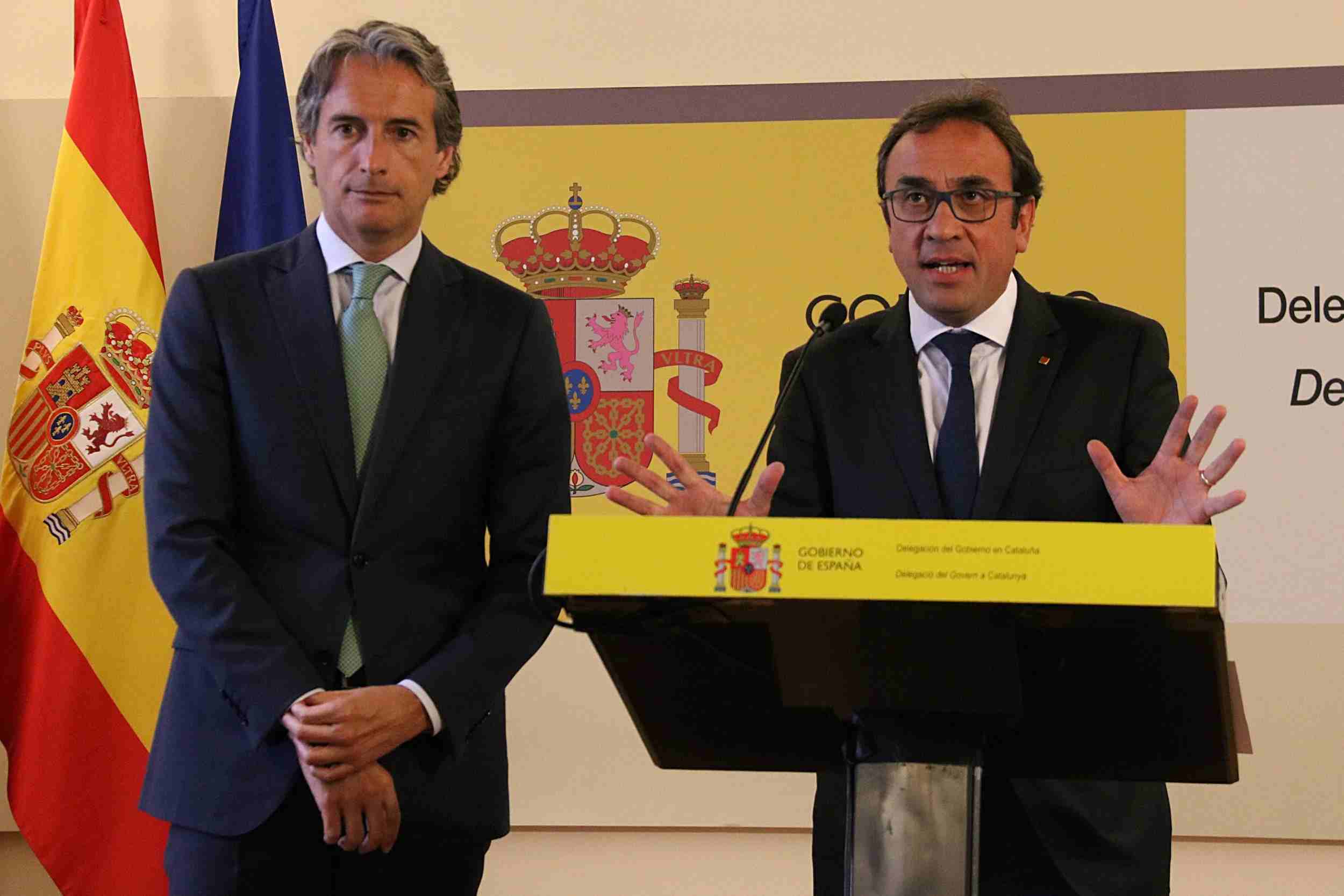The Catalan government this Friday put the Mossos (the Catalan police force) at the disposal of the Spanish state to help with security checks at Barcelona airport. The proposal came after the Spanish minister of Public Works and Transport, Íñigo de la Serna, announced that Spain would increase the presence of the Guardia Civil (national gendarmerie) at the airport's security gates to counteract the indefinite strike planned by workers from Eulen, the security contractors, from this Monday.
Representatives of the Spanish and Catalan governments met this Friday to discuss the situation with the security checks at Barcelona-El Prat airport ahead of the indefinite strike to start on Monday. In this meeting, Catalonia's Interior minister, Joaquim Forn, put the Catalan Mossos at the disposal of the Spanish government for the security gates, an offer rejected for reasons of their respective powers.
"We're thankful for the work the Mossos d'Esquadra do and their promise to make the necessary personnel available. However, we will deal with, as is our duty, everything to do with the security checks process," de la Serna said. For his part, the Catalan minister of Territory and Sustainability, Josep Rull, said that the Catalan government will reinforce "the presence of Mossos where we have jurisdiction", namely the outer areas of the airport, and he reiterated the offer to the ministry "for whatever tasks are necessary".
48 hours to accept the Catalan offer
With regards to the option to resort to compulsory arbitration to solve the dispute, Rull has given the Strike Committee 48 hours to hold a new assembly and to subject the Catalan government's proposal to a vote. "The Catalan government has already set a requirement for the assembly to meet again to vote on the mediation proposal. If it is not accepted, the door will open to going to a compulsory arbitration ruling", the minister said.
Eulen workers held an assembly this Thursday although, far from subjecting the government's proposal to a straight vote, they appraised a number of alternatives that at no time been on the negotiating table. For that reason, both the Spanish and Catalan governments have insisted on a new assembly to vote directly on whether or not to accept the proposal from the mediation process.
In the case that it's not accepted in the end, "the door will open to an arbitration ruling". The Catalan government believes that the responsibility for this issue falls on the Spanish state, as it also depends on the airport's management. De la Serna said that it is necessary to look into where the responsibility falls but that in no circumstances "would it be a problem" for Spain to start the process.
More information for passengers
In the same meeting, the Catalan government apprised the Spanish government of the need to reinforce the information systems, a request that was received well by the minister. "We will continue reinforcing communication tasks of AENA (the public airport operator) to avoid crowds," replied de la Serna.

